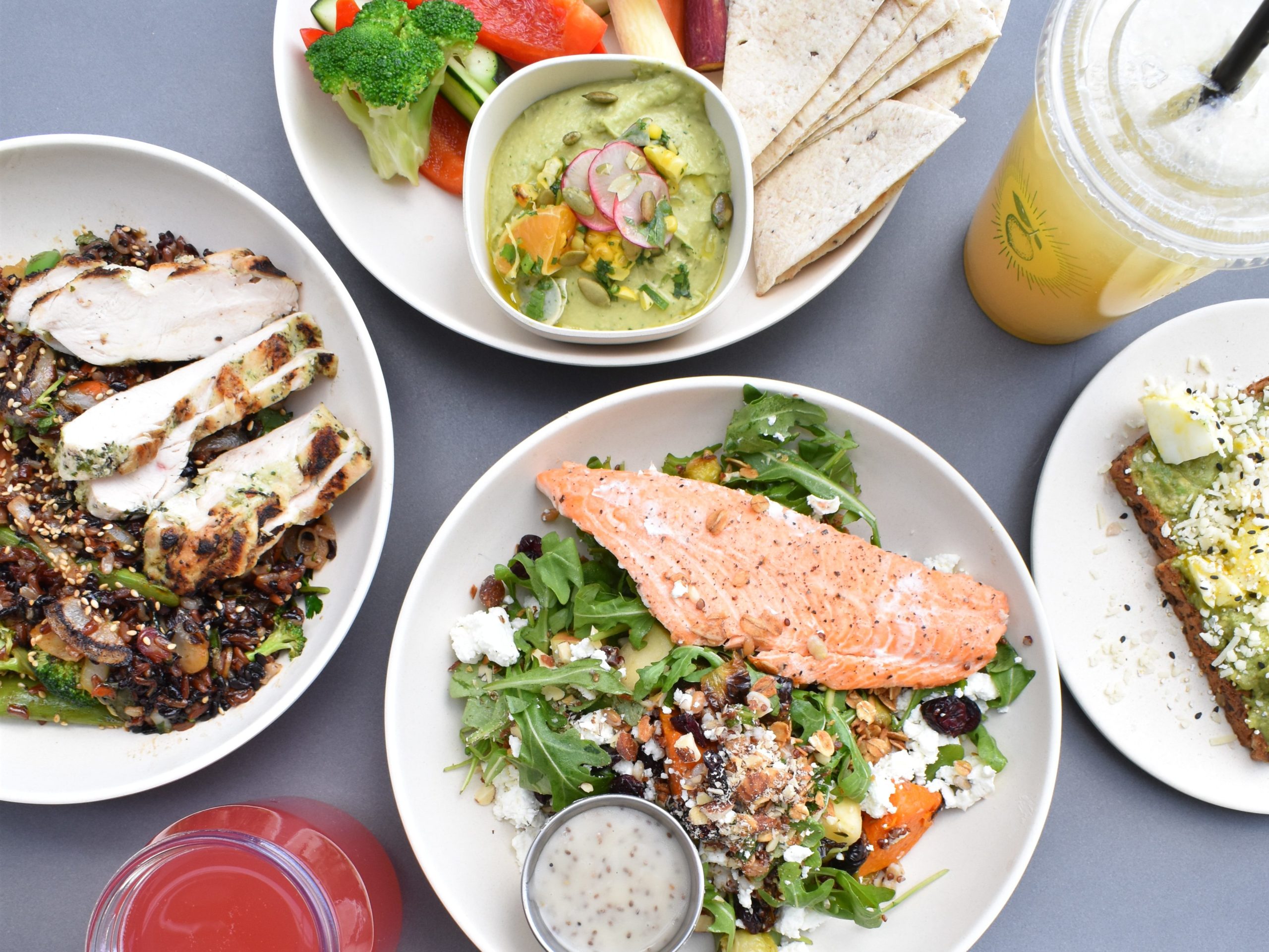How Much Protein Do You Actually Need?
It seems like anything related to fitness and nutrition, you are told one thing; increase your protein intake. They go hand in hand. Want to build muscle? Eat protein? Trying to lose weight or gain weight? Eat protein. Are you just trying to stay healthy? You guessed it. Eat more protein. How much do we actually need though?

Keep reading to learn everything you need to know about this macronutrient, including how much you need to eat, what types are best, and more!
What is Protein
Protein is a macronutrient that is vital to health. It is composed of over 20 building blocks called amino acids that come together to form enzymes, chemical reactions in the body, structure building, and function. This nutrient is vital for the body to repair, grow, and work properly.
Benefits
Proteins are used as enzymes and antibodies, in storage, transportation, muscle contractions, and hormonal responses in the body. This makes protein an essential nutrient. The body cannot store amino acids though, hence the importance of consuming adequate amounts of protein daily.
How Much Protein Do We Need?
Typically, as told by the World Health Organization, the optimal amount of protein is between 0.8 to 1 gram per kilogram of body weight. For a man that’s about 170 lb, that is 2 chicken breasts or three scoops of basic protein powder. This is for the bare minimum to live though, and if you are trying to gain muscle or even maintain, you are going to need more.
In fact, you start losing about 3 to 8% of muscle mass per decade after the age of 30. This means you need to work to maintain current levels of muscle or risk losing strength and mobility.
One way to measure your daily protein needs is to determine your nitrogen level. From carbohydrates, fats, and proteins, the last one is the only one that supplies nitrogen. Nitrogen entering the body should be greater than nitrogen exiting, creating a positive value. Measuring nitrogen at home might be difficult, so there are other ways to guestimate the needed amounts.
If You Don’t Work Out
If you just want to maintain, make sure about 15% of your daily nutrition is protein to make sure you have a positive nitrogen value. This is about the 0.8 grams per kilogram of body weight mark.
If You Want to Lose Weight
If you want to lose weight, studies show that it is better to increase protein intake as opposed to decreasing it. This correlates to lower levels of body fat.
If You Want to Gain Muscle
Let’s say you are looking to increase muscle mass. You need to boost protein even more as amino acids are used in muscle repair. This would mean you need to eat around 1.6 to 2.3 grams of these macronutrients per kilogram of body weight.
As explained here, when you lift weights and push your muscles, you are creating microscopic tears that are basically filled in and strengthened. Protein is needed to recover and strengthen.
For very intense, expert-level lifters, you are going to want about 3 grams for every kilogram of body weight. Again, this is not for the beginner or even intermediate weight lifters.
Risks
Too much of this nutrient does have drawbacks. Too much protein, if you are trying to lose weight, means less carbs and fat, meaning you’ll have less energy. If you are trying to gain weight, too much protein will make you too full too quickly, which will reduce your ability to eat enough.
Protein is also not very efficient. About 30% of calories from this macronutrient are needed just to digest it, so this will also decrease energy levels if you eat too much.
Stick to the lower ends of the protein per kilogram ranges and increase it as you see fit. Don’t worry about your kidneys though. Unless you have kidney problems, too much protein will not hurt you. People can eat as much as 4.5 grams per kilogram with no drawback if they have normal functioning kidneys.
Types of Protein
There are many good sources of protein for anyone, whether you eat meat or not. Lean meats like beef and pork, poultry like chicken and turkey, eggs, fish, and dairy products like yogurt and milk are great forms of this nutrient for individuals that consume animal products.
For those that want to avoid animal products, there are still options like legumes, nuts, seeds, and soy products to obtain the necessary levels of protein. Remember that B12 is usually lower in vegan diets, however, so it is important to supplement with something natural like nutritional yeast to ensure wellbeing. B12 is needed for red blood cells, oxygen transport, movement, and alertness.
Quick Tips For Nutrition
Here are some tips to help you along your fitness journey!
- Invest in higher quality meats – any animal product you eat should be grass-fed if it is within your budget. Not only is it less cruel, but it also provides more nutrients and minerals.
- Try out some vegetable options – there are good plant-based proteins like legumes and soy, but make sure you supplement B12!
- Drink your calories – Drink protein powders for an extra boost of protein if you have trouble eating enough.
- Boost smoothies with yogurt – add protein to smoothies in the form of yogurt to make a creamier, healthy blend.
- Use collagen supplements – collagen has amino acids and vital proteins needed for health, so try out some supplements.
The Takeaway
Protein is vital to health as we cannot make nor store amino acids, the building blocks of the body. Amino acids are used for a variety of functions in the body including immune health, structure, movement, repair, and cell growth. Eat good sources of this nutrient and start with the lower ends of the protein range, consuming more if you feel like you need to. At the very least, eat about 0.8 grams of protein per kilogram of body weight.
Remember that health comes from within, so eat well most of the time, exercise daily, and take care of your mental health. Take care of all of the components of wellbeing to improve your quality of life. Take care of your gut health too! Microbiota health affects muscles, the immune system, skin health, bone health, digestion, metabolism, and even mental health! Get your complete guide to gut microbiota health for free here today.





